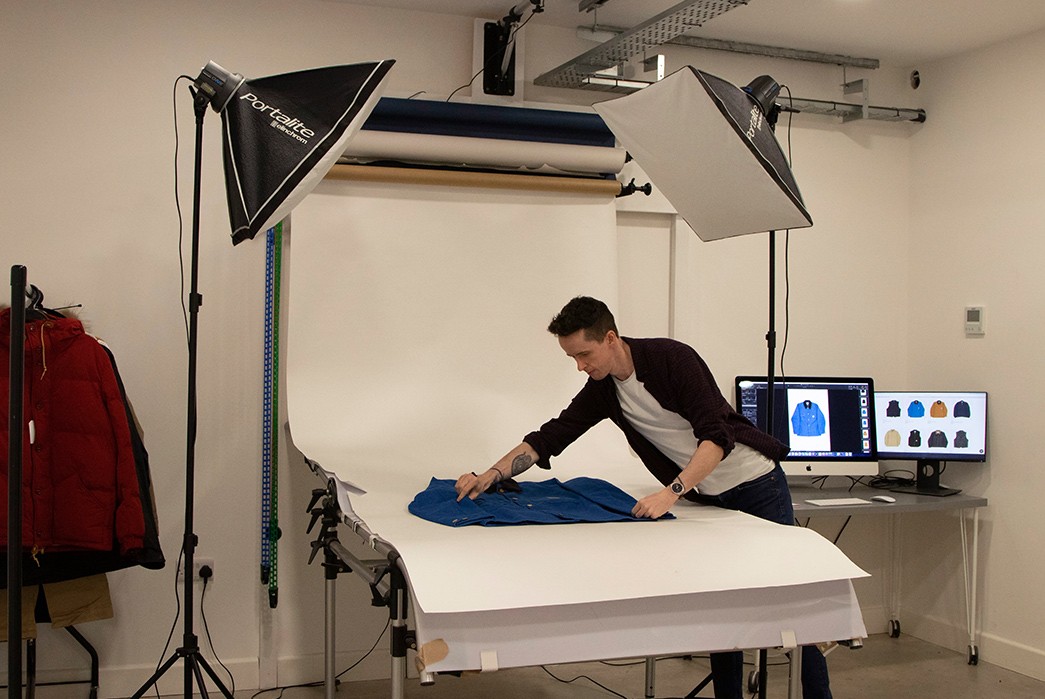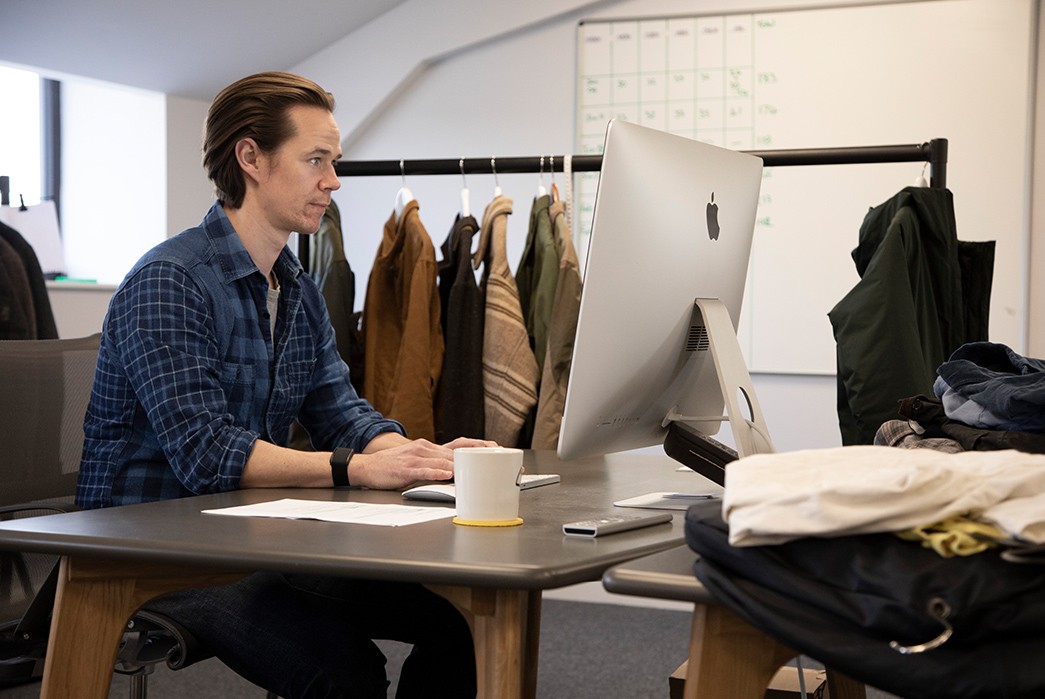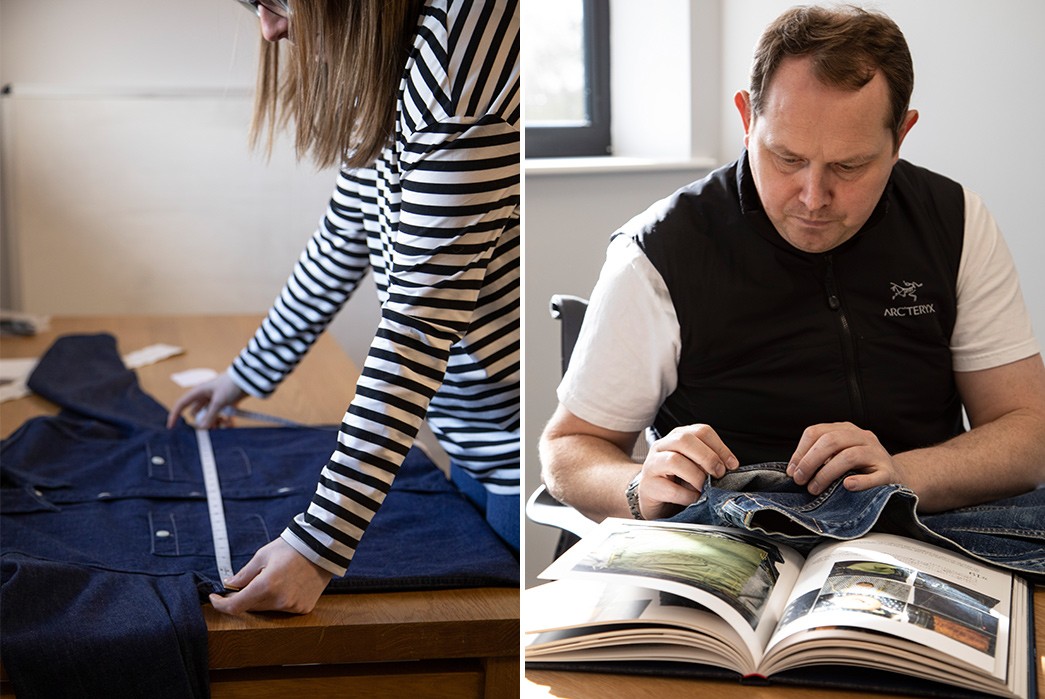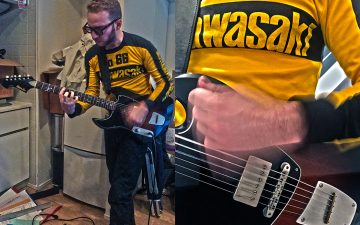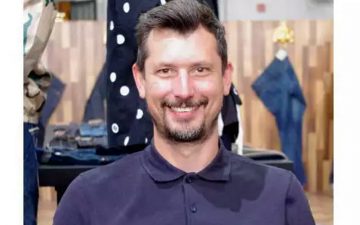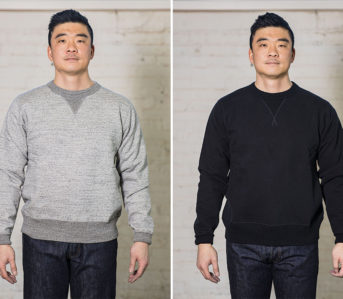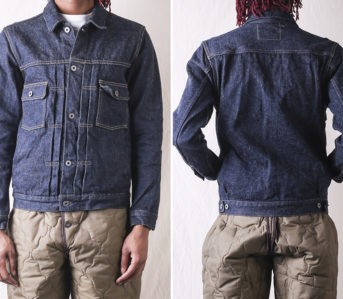It’s no secret that secondhand is no longer second best. What used to be thought of as ‘old’ or ‘used’ clothing is now as popular as buying new. Perhaps more so. Given the rise in awareness of key environmental issues and the impact of the fashion industry on Planet Earth, many are now turning to clothing that already exists in order to reduce their carbon footprint.
While Heddels readers might not be the first to jump on the 90s craze at the thrift, there is a point to be raised here. The reincarnation of vintage clothing has a much broader influence than just those involved with ‘hype’ culture, with stores like Round Two ushering in an era where recently produced clothing is becoming future vintage right before our eyes.
While we all might enjoy checking out each season’s new releases and adding some fresh threads to our wardrobes, how many of us look at these pieces as future classics, future vintage? An investment? Of course we know that certain brands have good resale value, but this is still an emerging market. Or Marrkt, you might say. UK based platform Marrkt have become the go-to (market)place for secondhand menswear from Beams Plus to Visvim.
Since 2017, the platform has specialized in selling high quality heritage pieces, including denim, outerwear, footwear and accessories. A well curated consignment site, Marrkt have adopted the approach of similar Japanese stores and created their own niche. We sat down with founder Lewis Hull to talk about his time in menswear, how Marrkt started and what you can expect as a buyer or seller.
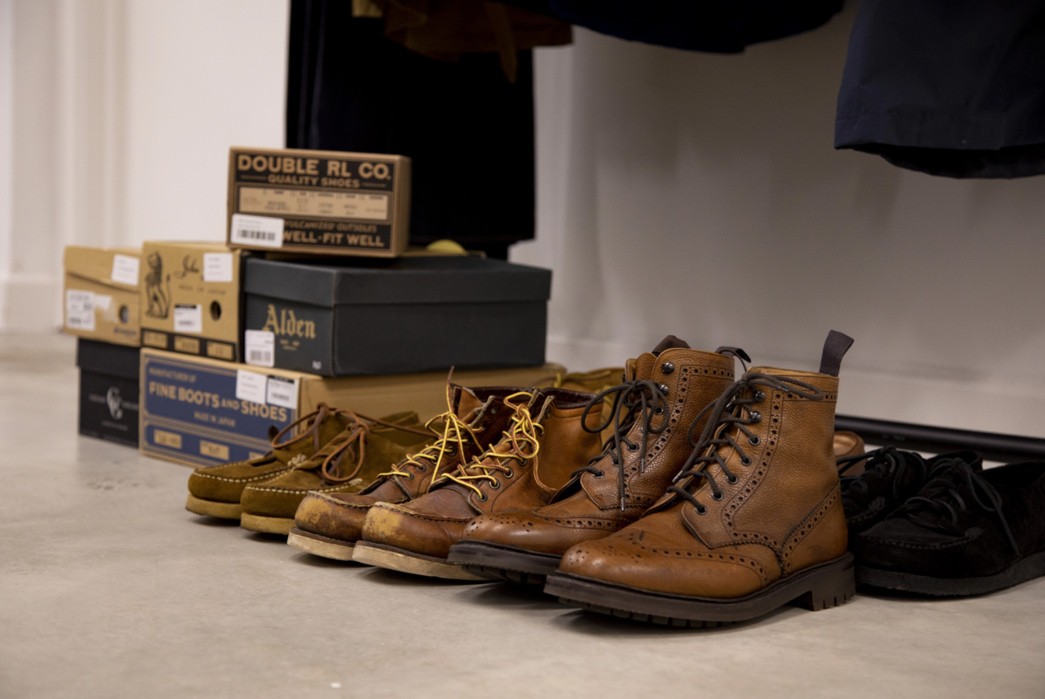
Heddels (Will Varnam): Thanks for joining us and taking some time out Lewis. How have things been with you guys during lockdown and the last 6-12 months?
Lewis Hull (LH): We’ve been busy really, everything dropped off a cliff back in March and it was a bit of ‘what’s happening here?’ But after the first week passed we had a huge influx of people wanting to sell their stuff and we had to take on an extra member of staff in April. Since then, it’s just grown and grown. It seems to have become even more relevant recently in a way that people are looking at their clothes and what they own, and of course there’s different motivations for everyone; some people want space, others have got too much stuff, some people’s weight has fluctuated and others are just reviewing what they’re wearing regularly.
We’ve also done some collabs with the likes of Permenant Style and guest seller slots with yourself, Ben Fogle and The Urban Hippie which has given us some extra exposure. On the other side, people still want the good stuff but they might not necessarily want to pay full price for it. This is also due to a change in perception of pre-owned and hopefully as a result of the great selection of product we’re able to offer.
H: It sounds like it’s been a culmination of a number of different things that have worked really well for you guys, from continuing to establish your presence in the market, grow your offering, and in turn gaining more exposure as a result. As well as the context of the last 12 months encouraging people to reflect on what they own and how they buy.
LH: Definitely. I’ve been able to focus much more on the platform during 2020 and be more involved with the selection and curation of content, ensuring we’re putting the best pieces out there at the best prices. It’s been a great year really, from that perspective.
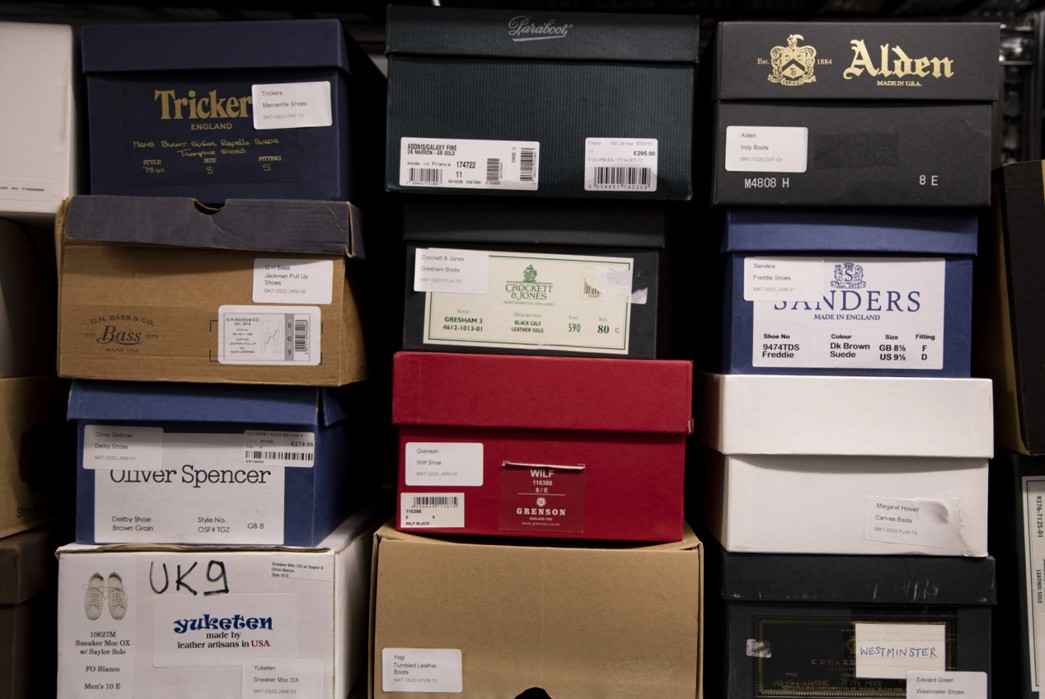
H: What’s your background in menswear and heritage clothing? How did you come to be involved with Marrkt?
LH: Back in 2007 I set up a distribution business to find interesting products from around the world and bring them to the Western market. The first product was a Japanese denim brand called Studio D’Artisan who were based in Osaka. I’d been reading a lot of forums and there was a big demand for Japanese denim (especially from the Osaka 5) that wasn’t being met within Europe. Blue in Green was just starting in NYC but there weren’t many stockists in Europe.
I used to eat at a Japanese restaurant where I asked the waitress to help me translate an email to Studio D’Artisan and they replied that they were interested in finding a distribution partner. So I jumped on a flight to Japan and went to meet them, coming back as the distributor for them and I started placing orders.
I brought back a sample pack of their denims which I would take around Europe and try to find stockists. I also decided to set up my own online store SUPERDENIM, so I could sell direct to the customer, as well as wholesale. That expanded into doing distribution for The Real Mccoy’s, as well as selling their product through my platform. Things grew from there and I was on the pulse with finding Japanese brands to work with like Post O’alls, but also brands like Yuketen and Engineered Garments. We then opened up The Real Mccoy’s shop in London in 2014.
H: How did Marrkt come to be?
LH: It started as a side project because we used to get past-season deadstock from Nigel Cabourn. That was the main activity on Market but it was very sporadic. But the problem was the site had a firewall at the time and users had to register to access the product. There would be so many people trying to get on the site that it kept crashing (perhaps a sign of the times) and demand was just going up and up. We continued to sell deadstock as and when, but in 2017 we had a long term customer who had been collecting Nigel Cabourn pieces and had over 150 garments, which he wanted us to sell for him.
However, some of it was pre-owned and we’d never sold that before. But the sale went really well and was a light bulb moment that there was a market for pre-owned and secondhand goods from well-made brands. It was also getting harder to find deadstock from brands as they were doing their own sample sales and in-house activities. Whereas there was no real limit to pre-owned as there’s so much of it out there. It’s really driven the business since then.
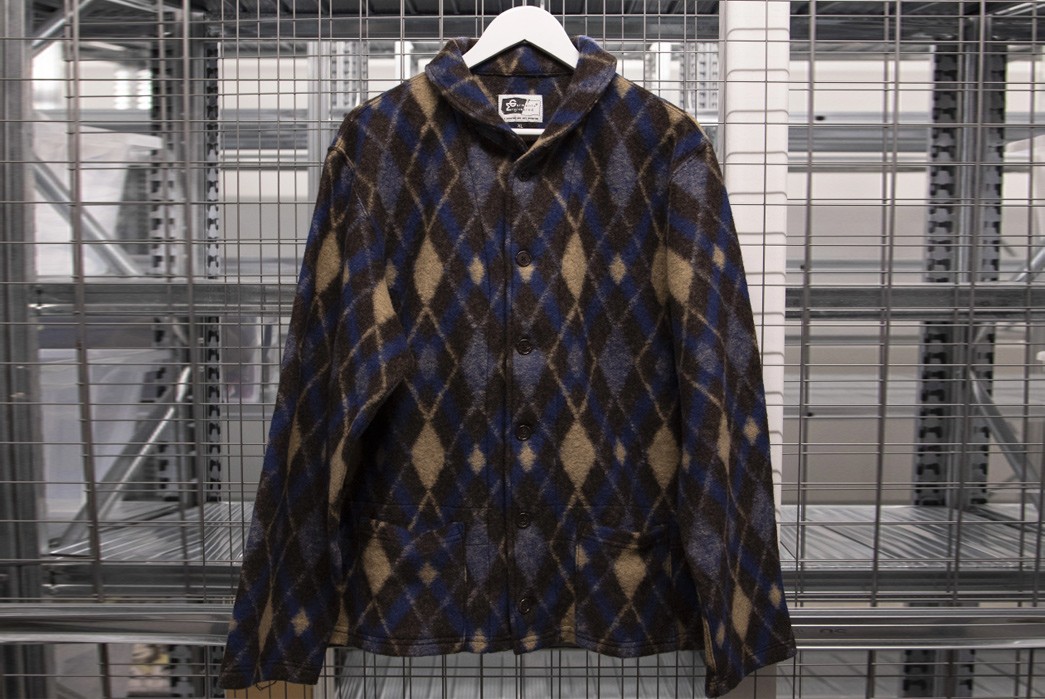
H: So for those who might not know and for clarity, how would you describe Marrkt?
LH: I’d say it’s an online selective consignment store in the broadest terms. I’ve visited Japan a lot over the last decade and I was always inspired by these stores you’d see in Tokyo or Osaka that was full of secondhand clothing, which was being sold on behalf of individuals. It’s something we’ve never really had over here and it had always been in the back of my mind. And that’s what Marrkt has become. People send their items directly to us and we sell it for them through our online store. We handle everything from getting the products to our warehouse, photography, listing, size guides and order fulfillment. As reward for our service we retain a percentage of the sale price. That’s really it, in a nutshell.
H: How did the name come about?
LH: I was sat in a friend’s apartment when we were developing the concept, which at the time was primarily deadstock, and I remember thinking it’s a bit like a market. But obviously, the .com wasn’t available, so we started playing around with different spellings and marrkt.com was available, so that was it. We got the branding done by the guys at Commission in London and we really liked how it came out.
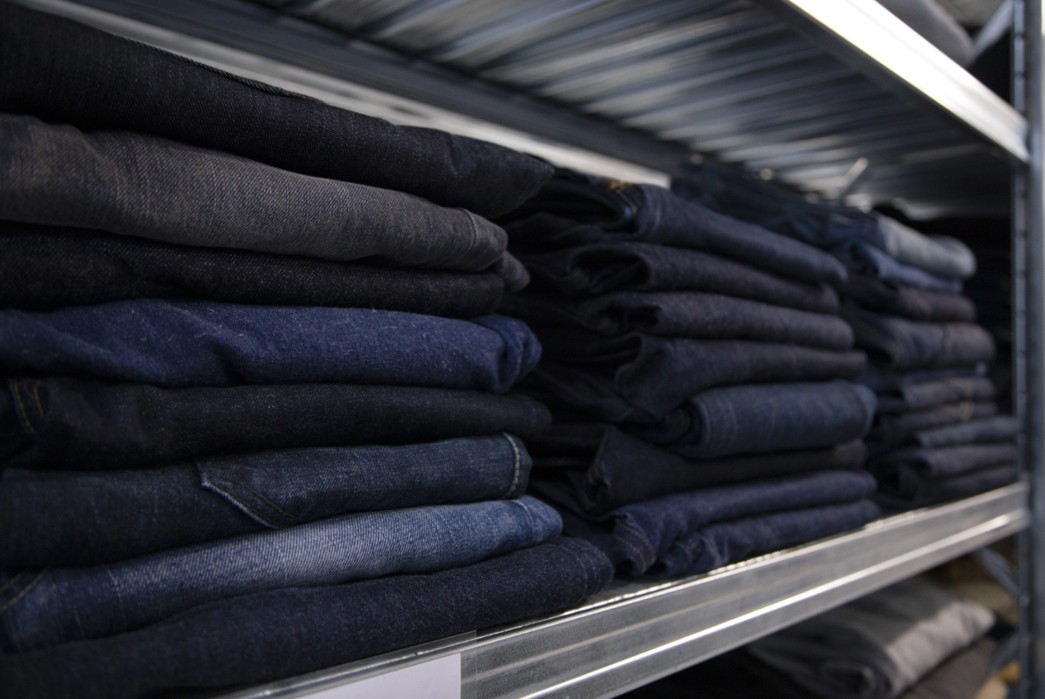
H: 2020 was obviously a good year for Marrkt, but how has the response been in the long term?
LH: It was a slow burner to begin with. We’ve always had people wanting to sell their stuff but as with any new business concept it takes time. It’s grown very organically and becoming more popular over the years and with what’s happened recently, it’s really accelerated. What’s really been nice over the last 12 months is the positive feedback from customers and endorsing the concept of what we’re doing.
We’ve also found that a lot of people can’t be bothered selling their stuff on eBay, Grailed, or Depop, they might not have the time or the patience. I think a lot of fingers have been burnt as well with those platforms. I suppose we take the pain out of it and make it more legitimate in a way – we check everything that comes into, items are packaged well, it’s shipped by reliable couriers and there’s a solid returns process, etc.
Something that I have to pinch myself about is the trust element—we have sellers from all over the world from Australia, to Kazakhstan, Mexico, the US and the UK. Customers are sending us a lot of inventory— sometimes multiple boxes—for me that requires a degree of trust. But we hope that’s a reflection of the professional service we offer and the trust we’ve built with our sellers and customers.
H: For those who might not know, how does Marrkt work? Can you give us an overview of the process?
LH: The process starts with somebody contacting us to say that they’ve got these items to sell. We’ll say, okay, that sounds great. Can you send us some pictures and / or additional details? Some sellers prefer a confirmed price before sending their items to us, but others will send them and we’ll propose a price once we’ve inspected the item.
We provide a shipping label to the seller and arrange for the item to be collected from them. Once it arrives with us, we’ll give it an identification label and begin the process of photographing, measuring, and listing. We update our Instagram and also circulate a three times weekly newsletter to our subscribers. After an item has sold, there is a returns period (21 days) but once that returns period ends the seller gets the payout for the item sold via Paypal. We also take a commission of 37% on all sales.
H: Tell us about some of the brands that you offer on market?
LH: We’ve got a lot of denim and workwear brands. For example, we have a lot of The Real McCoys and we’re one of the main online platforms if you want to sell pre-owned McCoys. We cover a lot of Japanese brands like Full Count, Kapital, Post Overalls, and then brands like Engineered Garments.
We’re keen not to be pigeonholed into only workwear and denim, so we’ve expanded the offering to includes brands like Drakes and Northampton shoemakers like Trickers for example. But the whole concept is that we’re selling quality items and those items will continue to offer quality the more they’re used and worn.
H: So what’s the criteria for an item being Marrkt worthy?
LH: Yeah, I suppose for an item to be associated with those brands that we offer already and for it to be in at least good, clean, condition.
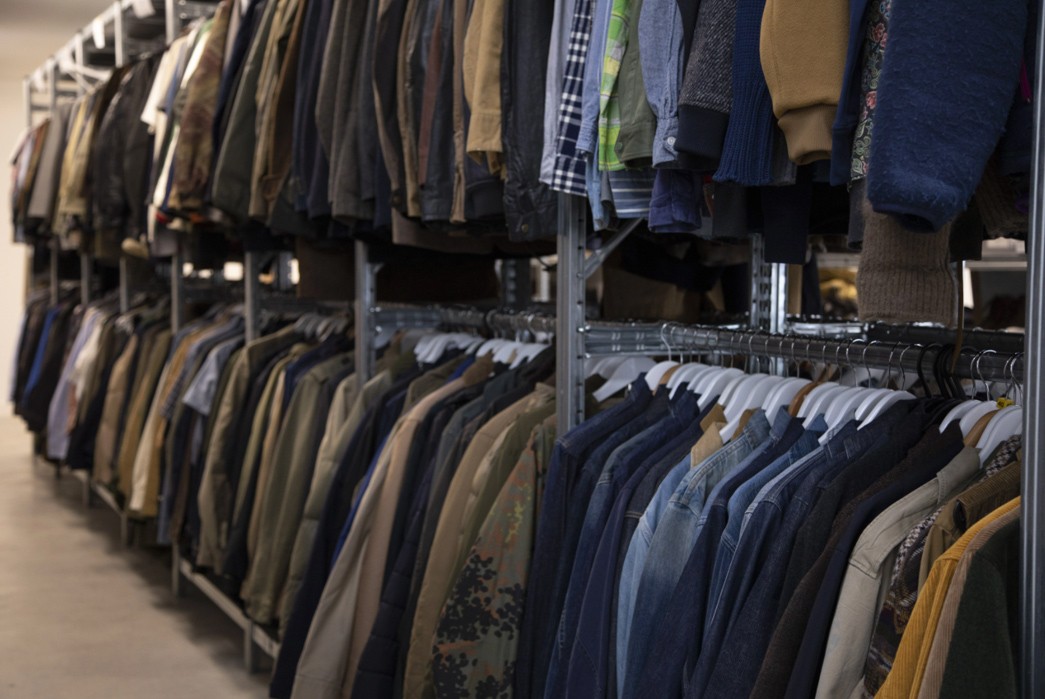
H: What would you say are the benefits of market, both for the seller and the consumer?
LH: For the seller, it’s a case of deciding what to sell and putting it in a box, then we take care of the rest. So from the perspective of hassle and time, it’s a huge benefit for the seller. Plus, we tend to get a better final sale fee than you would on an auction site as well. For the consumer, you get access to a huge variety of product that would have originally sold at a much greater price.
Some items even look better than when they were originally sold, like denim for example. A pair of jeans might have great fading and gone through several washes, making them look even better than when they were new. It’s also the chance to get an item from a past season that might not be available anymore, or anywhere else. The site generates a lot of excitement as there’s only one of each item, so we get regulars checking the site every day and buying very quickly.
Sustainability is also a big issue for us. We’re really proud that we are promoting the re-use and recycling of items, rather than them just being thrown away or creating waste. We feel confident that we’re contributing in a positive way and we’re trying to be as green as we can be.
H: Do you accept international buyers and sellers?
LH: Absolutely. We have buyers and sellers from all over the world. We’ve been doing e-commerce and shipping internationally for well over 10 years now, so we have a really solid infrastructure. It doesn’t really matter where you are!

H: What are some of the most interesting items you’ve received at Marrkt?
LH: We recently received an original 1950’s Buddy Lee doll which was really cool. It was missing a few fingers and kinda looked a bit creepy, some of the staff had never seen one before and were a bit freaked out by it. We also sold a Visvim Bandana jacket recently which was really nice, that went very quickly. We’ve also sold a fair amount of original vintage Levi’s over the years—some of which were mine that I’d picked up in Japan over the years – they always do well for us.
M: Lastly, what are your future plans for Marrkt?
LH: We see the USA market as hugely important for our growth plans so have made moves to open an office and warehouse there later this year. I’m also interested in exploring peer-to-peer selling – perhaps side by side with the consignment model – and expanding our reach to enable sellers and to reach buyers specific to the type of product we sell. Finally, once the lockdown is over we will organize some pop up events around the UK. It’s an exciting time for Marrkt.
You can follow Marrkt on Instagram or visit their website to view items and find out more.
